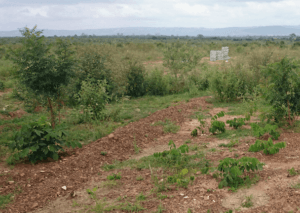AU conference urges rooting out corruption and review of cultural practices that deny women access to land
 The issues of land access in many African countries are a matter of life and death. While there are laws and regulations for land, the processes are complicated, manipulated and often to the disadvantage of the poor and marginalized groups including women.
The issues of land access in many African countries are a matter of life and death. While there are laws and regulations for land, the processes are complicated, manipulated and often to the disadvantage of the poor and marginalized groups including women.
At the just ended 2019 Conference on Land Policy in Africa held in Abidjan, Cote d’Ivoire last week, participants have identified corruption as one of the major problems associated with land management on the continent and called on African leaders to work to up root corruption out of the sector.
In a press release issued in Abidjan by the Economic Commission for Africa (ECA) and copied to ghanabusinessnews.com, academic institutions and participants pledged to work together with traditional leaders in formulating solutions to the land crisis in the land sector.
The traditional leaders made a commitment to review cultural practices and beliefs that have long denied women access to land.
“Culture is dynamic and changes. We commit to gender and to use inclusive decision making processes,” said His Royal Highness Drani Stephen Izakare of Uganda, was quoted as saying.
He added that there was an urgent need for Africa’s judicial systems to formalize the role of traditional leaders in land management and dispute resolution mechanisms.
They also committed to fighting corruption within the ranks of their traditional institutions; and called for the creation of more synergies and closer collaboration with government and land administration institutions to ensure land administration services do not provide opportunities for corruption
They agreed that land administration institutions on the continent should be strengthened to improve competencies, the release said.
It noted that participants called on governments to put in place policies where there are none, and to review existing ones so they can be in tandem with experiences on the ground and current realities.
Governments were also called upon to ensure that policies and laws take into account the interests of the youth and women and other marginalized groups; encourage climate-friendly and sustainable land use, and to put in place mechanisms for the management of cross-border resources, it added.
By Emmanuel K. Dogbevi
